Iron Skin Benefits
Iron Hair Benefits
Iron Health Benefits
Benefits Of Iron For The Skin
1. Gives Your Skin A Healthy Glow
Pale skin and dark circles are the most common signs of anemia caused due to iron deficiency (1). The lack of iron causes hemoglobin levels to decrease, resulting in the subsequent reduction of RBCs. The reduced oxygen flow can deprive your skin of its color, making it look sallow. A healthy dose of iron-rich foods in your daily diet can give your skin a pinkish glow.
2. Speeds Up Wound Healing
Iron also plays an important role in speeding up the process of wound healing. It helps in the formation of RBCs, the most essential constituent of hemoglobin that transports oxygen around the body. Without the proper supply of oxygen (that also carries other nutrients), wound healing cannot take place (2). You know what to do about treating those painful wounds the next time!
Benefits Of Iron For The Hair
3. Fights Hair Loss
A European Journal of Dermatology study found that women can experience excessive hair loss due to iron deficiency. The study reported that low iron stores (ferritin) increase the rate of hair fall, especially in non-menopausal women. Iron also helps improve hair texture and reduces dullness by increasing the flow of oxygen and nutrients to the hair roots and scalp. You may learn different ways to use iron for hair growth and take care of your hair’s health.
Benefits Of Iron For Health
4. Makes You Energetic
Iron acts as a carrier of oxygen in the body and transfers it to the muscles and the brain, thereby increasing both physical performance and mental alertness. Low levels of iron within the body can make you inattentive, irritable, and fatigued. As per a study conducted by the University of Melbourne, iron supplementation helps improve exercise performance in women (4).
5. Improves Appetite
For those concerned parents whose kids are small eaters, iron supplementation may help increase your child’s appetite. A study by The Journal of Nutrition performed on Kenyan primary school children found that iron supplementation increased appetite and growth in children (5).
6. Aids Muscle Function
Iron is also extremely important for improved muscle health. It aids in the production of myoglobin (a muscle protein) that carries oxygen from hemoglobin and stores it in the muscle cells (6). It thereby helps in the contraction of muscles.
7. Contributes To Brain Development
New mothers must make sure that their kids have a diet rich in iron to ensure healthy brain development. As per a study by the Seminars in Pediatric Neurology, the cognitive function, motor, social-emotional, and neurophysiological development in infants suffering from iron deficiency anemia is lower than those who are not (7). The study thus emphasizes the importance of preventing iron deficiency for improved brain health.
8. Ensures A Healthy Pregnancy
Doctors recommend pregnant women to increase their intake of iron from food sources or supplements. A Cochrane Database of Systematic Reviews study reports that the prenatal supplementation of iron helps lower the risk of low birth weight and prevents maternal anemia during pregnancy (8). Pregnant women should take 27 milligrams of iron a day. Iron supplements are best absorbed when supplemented with foods rich in vitamin C, such as orange, grapefruit, and tomato juice.
9. Enhances Immunity
Another wondrous health benefit of iron is its ability to bolster up immunity. According to Linus Pauling Institute, iron is highly useful for a number of immune system functions such as the differentiation and proliferation of T lymphocytes and the production of reactive oxygen species that fight pathogens (9).
10. Alleviates Restless Leg Syndrome
Restless leg syndrome (RLS), a neurological movement disorder, creates an urge to move the legs repeatedly. These sensations get further intensified at rest, and therefore, cause disturbed sleep. A study conducted by Age and Aging found that the deficiency of iron (with or without anemia) can trigger RLS in the elderly (10). Taking iron supplements can, thus, alleviate its symptoms.
11. Provides Relief From Premenstrual Symptoms
Studies suggest that a high intake of iron can provide relief from pre menstruation symptoms like dizziness, mood swings, hypertension, etc. As per research conducted by the University of Massachusetts at Amherst, women who enjoy an iron-rich diet have 30 to 40 per cent lower risk of experiencing PMS compared to women who consume less iron (11). Thus, it is also important to include hemoglobin-rich foods in your diet to maintain optimal iron levels. Here are the top food sources you can obtain your daily dose of iron from: Heme (Animal) Sources: These are the best sources for increasing and maintaining good iron levels in your body.
Britt, a blogger, shares how the pills she is taking for her iron deficiency are hard for her stomach. Due to this, she added iron-rich foods to her diet. She states in her blog, “In the meantime, I am on a mission to get my mojo back by packing my diet full of iron-rich food. So far, that’s meant oatmeal, dried beans, leafy greens, tempeh, and blackstrap molasses (i).” Britt also adds that she has come up with an iron-rich lasagna recipe that contains healthy ingredients like spinach, whole wheat noodles, nutritional yeast, and white beans.
Age And Gender-Wise Daily Recommended Intake Of Iron
As per the Linus Pauling Institute, following is the recommended dietary intake of iron:
Iron Deficiency
Below are some of the greatest risks associated with iron deficiency:
1. Anemia
Anemia is the biggest risk associated with the deficiency of the mineral. This disease displays symptoms like fatigue, loss of energy, faintness, body weakness, headaches, and enhanced sensitivity to cold temperatures. It can also result in other health problems like low blood pressure, kidney failure, leukemiai Cancer of the body’s blood-forming tissues, including the white blood cells, the lymphatic system, and the bone marrow. , muscle spasms, colon cancer, etc (12). Stephanie, a vlogger, spoke about her difficult experience with anemia in her video. She said, “I ended up getting really bad headaches. I could not go to sleep at all. I lost an incredible amount of weight (ⅰ).” In a study of 2,141 patients, the prevalence of iron deficiency was 26.8% at baseline. 5.6% of those (120/2141) took iron supplements and 6.5% had anemia (140/2141). Among the 210 iron-deficient men, only 9.1% (19) were anemic whereas among 363 women,12.1% (44) were anemic. The study also suggests that the risk of iron deficiency increases with age, as higher prevalence was found in the population aged 80 years or more.
2. Lead Toxicity
Iron deficiency can also heighten the chances of lead poisoning in kids. A study by the Science of the Total Environment found that high iron intake and adequate iron stores can lower the risk of lead poisoning among children (13). Other problems associated with iron deficiency include weakened immunity, pregnancy complications, reduced sperm, mood disorders, joint pain, reduced sperm, mood disorders, joint pain, intellectual impairments in children, etc.
Excessive Iron Consumption Risks
Though iron is extremely important in our body, its excessive consumption can also be very dangerous. Following are the adverse effects associated with iron overdose:
1. Increased Risk Of Cardiovascular Diseases
Iron levels can significantly impact cardiovascular health. A study conducted by Indiana University found that heme iron, contained in red meat, can increase the risk of coronary heart disease by 57 per cent (14). As per the study, non-heme iron doesn’t have any impact on the risk of heart diseases. It is, therefore, important that you limit your intake of iron from heme sources.
2. High Incidence Of Cancer
High iron intake can also increase the risk of cancers like colorectal, colon, and liver cancer. A Cancer Epidemiology, Biomarkers, and Prevention study found a connection between iron and an increased susceptibility to colorectal cancer. Therefore, you should monitor your iron levels for cancer prevention (15).
3. Occurrence Of Gastrointestinal Problems
Doctors world over recommend iron supplementation to people suffering from iron deficiency. These supplements may, however, cause gastrointestinal problems such as nausea, diarrhea, constipation, and dark stools. Check with your doctor on ways to minimize these symptoms.
4. High Risk Of Neurodegenerative Diseases
Though iron is important for improved brain function, an accumulation of excess iron can make your brain prone to increased oxidative damage. It can, thus, contribute to the risk of neurodegenerative disorders like Alzheimer’si a neurologic condition that progressively worsens, shrinks the brain, and kills brain cells, leading to confusion and memory loss. and Parkinson’s diseasei A condition marked by tremors and stiffness that worsens with time and affects the neurological system and the body. in the elderly (16).
5. Susceptibility To Type-2 Diabetes
Another study by the American Diabetes Association found that heme iron is also responsible for increased risk of type-2 diabetes in women (17).
6. Increased Susceptibility To Premature Skin Aging
Many sources state that iron helps prevent premature skin aging. This claim, however, couldn’t be further from the truth. A study conducted by Aging Research Reviews reports that an overdose of iron can increase the production of toxic hydroxyl radicals, thereby contributing to oxidative damage that damage that in turn leads to early skin aging (18).
Iron is just one of many nutrients that support your health, so it is worth exploring the broader impact of nutrient deficiencies on your body to gain a comprehensive viewpoint. While iron may have numerous health benefits, ensure that you take it properly, as directed by the doctor. Read on to learn how to take it as a supplement.
How To Take Iron Supplements
Before taking iron supplements, first consult a healthcare professional to determine the right dosage for you. Here are a few tips to keep in mind when taking iron supplements (18):
Take the supplements on an empty stomach with vitamin C-rich foods or juice, as vitamin C enhances iron absorption. Avoid taking iron with dairy products, calcium supplements, antacids, or tea, as these can inhibit absorption. If iron supplements cause stomach discomfort, take them with a small amount of food. Do not take them with coffee or tea, as they too can interfere with absorption.
Ensure you follow the recommended dosage and never exceed it, as excessive iron intake can be harmful. If you experience adverse reactions, consult your healthcare provider promptly. Is it good to take iron every day? Iron can be taken every day if prescribed. Unless medically advised, it is not safe for adults to take more than 45 mg of iron per day. When should I take iron – morning or night? It is advised to take iron in the morning, an hour before a meal or two hours after a meal. Its maximum benefits can be reaped if taken on an empty stomach. However, if you experience symptoms like nausea, upset stomach, and constipation, it is recommended to take iron at night. Can low iron cause gray hair? Yes, low iron may cause gray hair. Lack of iron in the body disrupts iron supply to the hair and may trigger graying of the hair. Does low iron make you smell? No, there is no research that proves that low iron levels make you smell.
Illustration: Benefits Of Iron For Your Skin Hair And Health
Learn why iron is crucial for our overall health and well-being. Find out more about the significance of this mineral in our blood in this informative video.

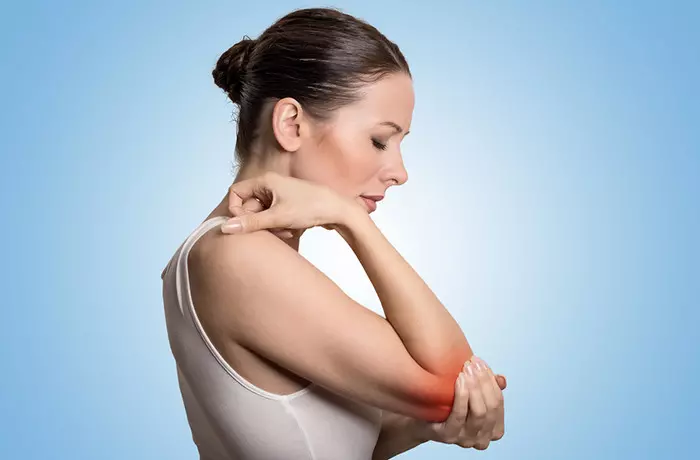
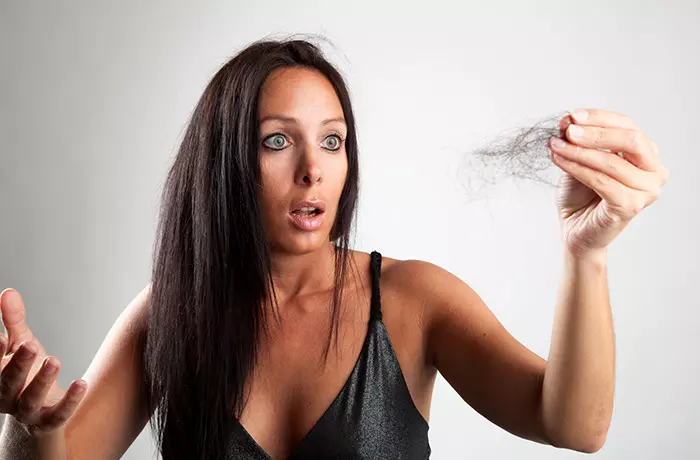

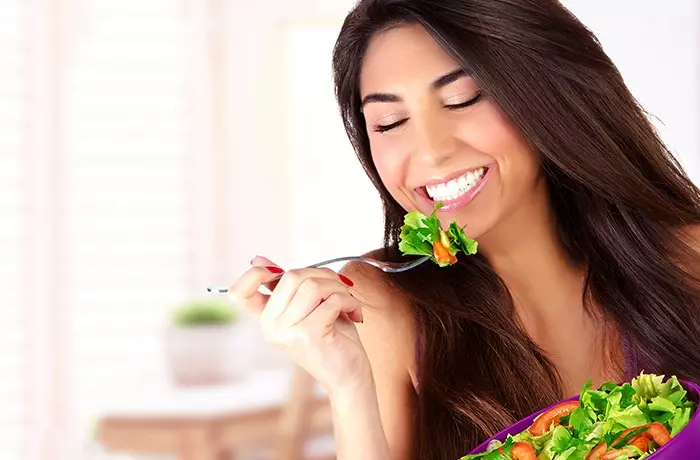
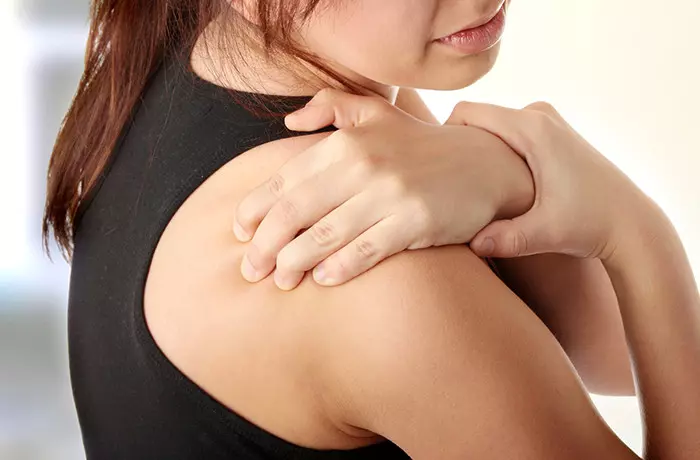
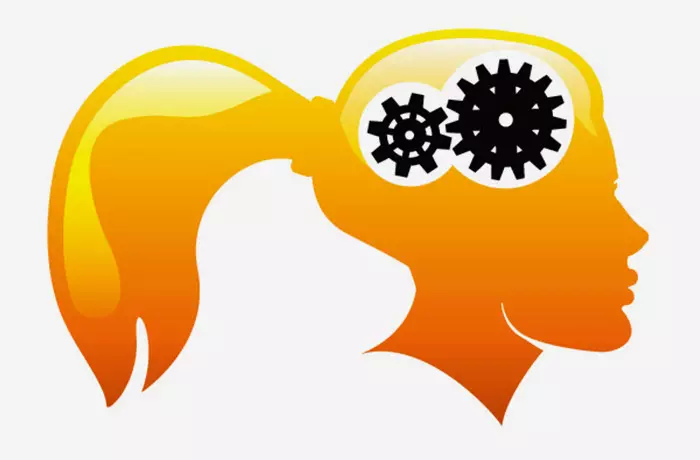
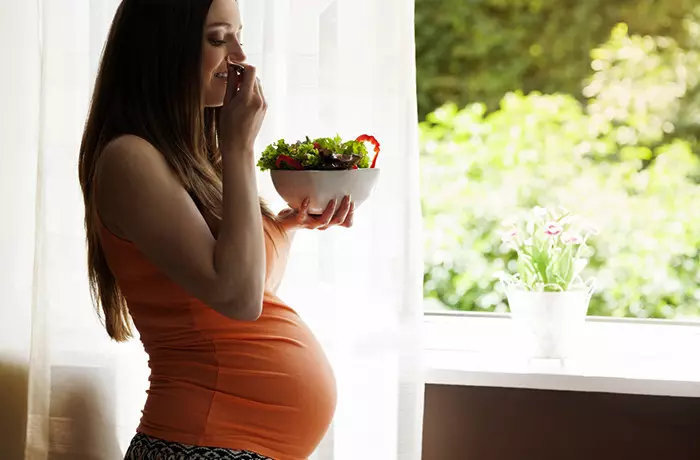
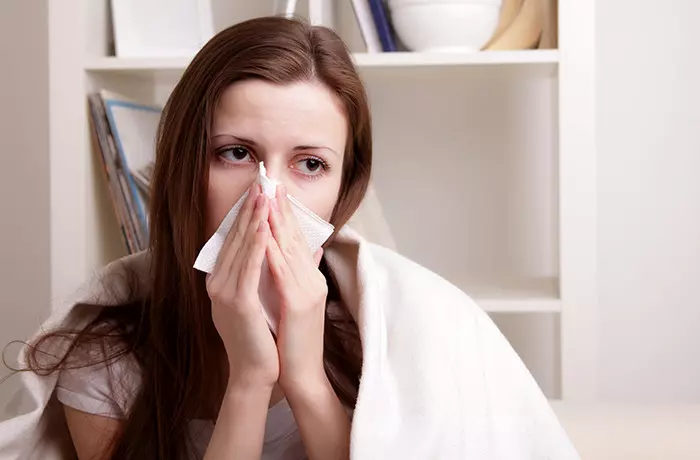
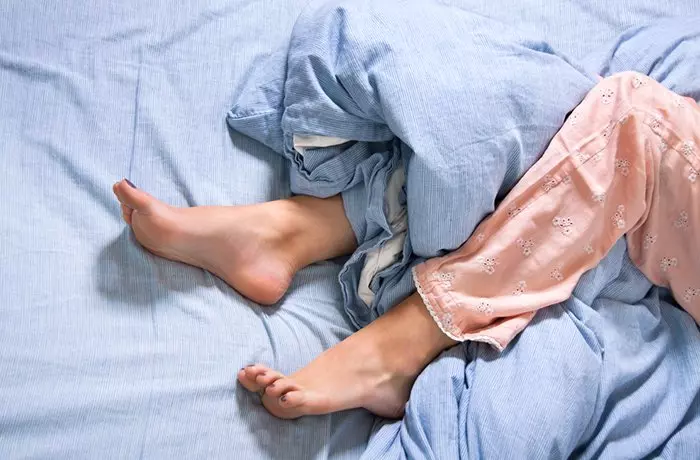


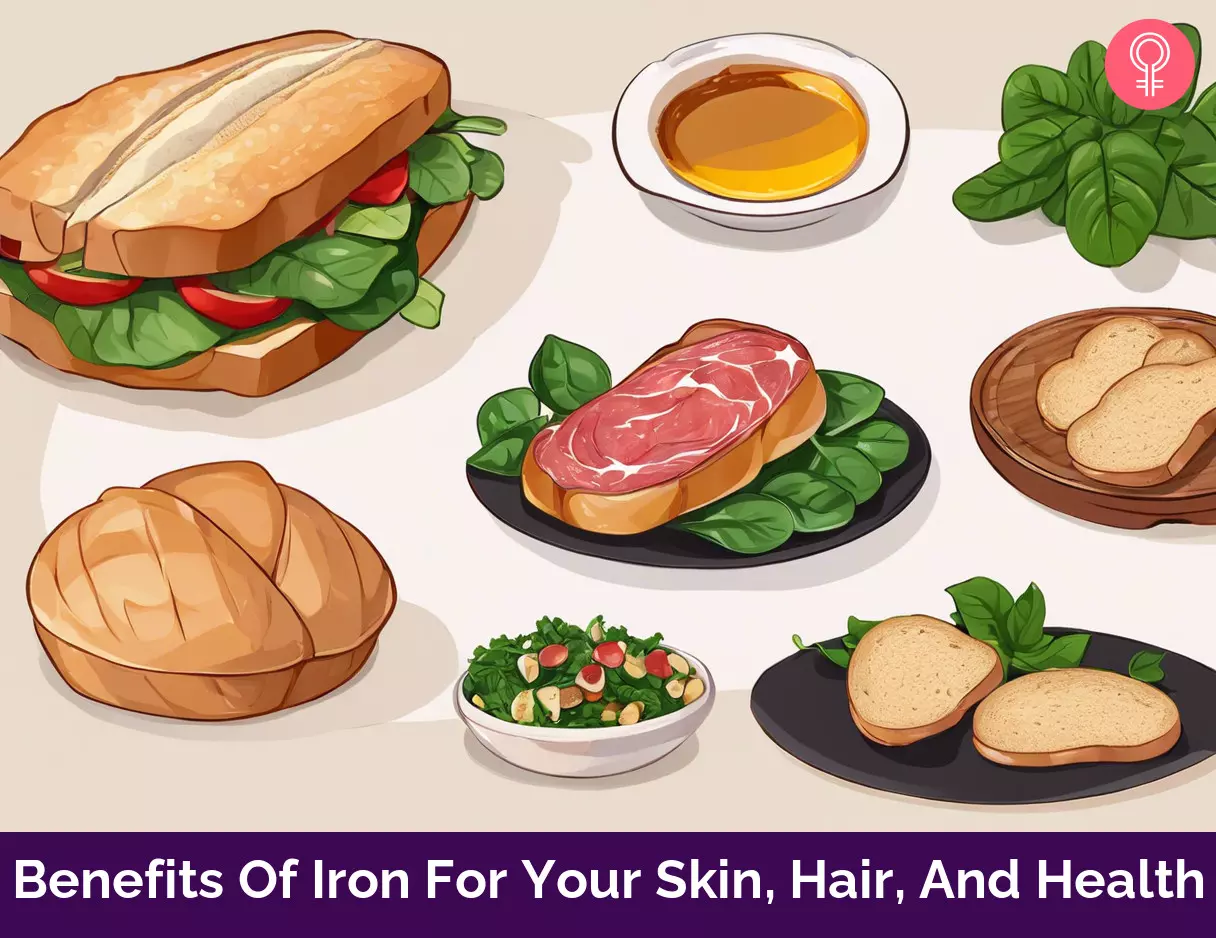



![]()

